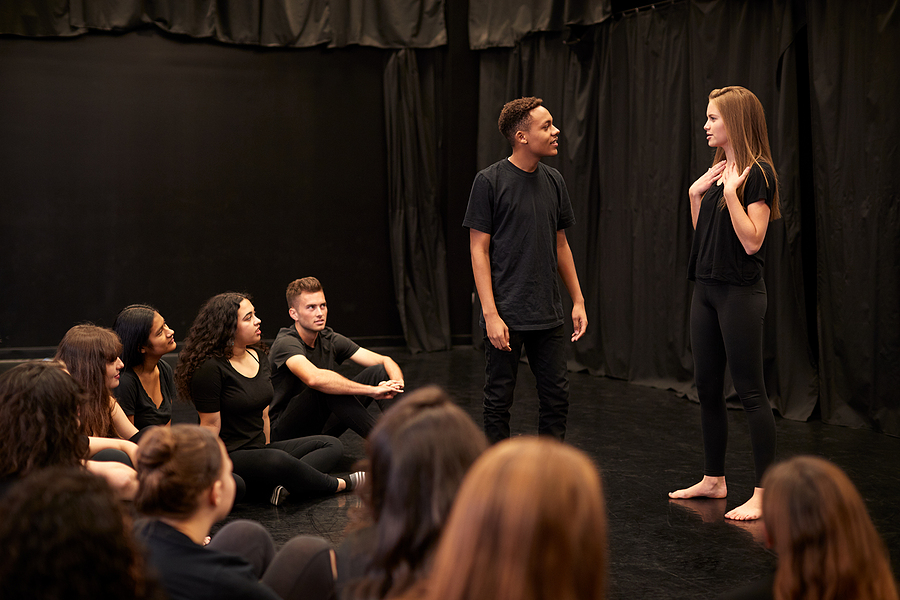There are many skills that can help to improve your acting ability. Some of these are well known, such as developing your vocal and emotional range and cultivating your posture and body language.
These are essential skills for anyone with serious acting ambitions. However, expanding your vocabulary can also be the key to giving you that extra ingredient for acting success. Here’s why it matters and some simple ways you can become a wonder with words.
What a rich vocabulary does for you as an actor
You may assume that an excellent vocabulary is the concern of school students and those in writing-based professions. However, as an actor, language is a primary mode of expression that helps you to understand stories, characters and emotions more deeply and precisely, and to interpret and express them more accurately and convincingly to an audience.
A good vocabulary will increase your range as an actor, because you will be able to understand and embody a wide range of texts and characters. For example, you will have a greater appreciation of historical texts such as Shakespeare, and the confidence to tackle different genres and key roles with a lot of dialogue or monologue.
Once this understanding becomes more instinctive, you will sound more natural and convincing delivering lines even if they are in somewhat archaic and dense language, as much as Shakespeare’s plays are. You will be able to interpret these plays in a fuller context, boosting your confidence and clarity of meaning and expression.
A deeper appreciation of the subtleties of words will also broaden your understanding of a range of characters, stories and texts, and enable you to deliver a more nuanced performance that really resonates with the audience. This will help to evoke an emotional response and make your performance more powerful, authentic and memorable.
The wider your vocabulary, the more confident you will be in improvising, which is an important skill for an actor to have. This is the art of reacting spontaneously to a cue in a creative way, rather than just delivering the lines you have learnt.
Many actors find this a daunting challenge, but it can be essential for those moments when your acting partner doesn’t do what you expected, or you forget your own lines or lose your place in a script.
It can also produce magical moments of vitality and humour during a performance. This improvisational quality will be much more effective and enjoyable if you have a well-stocked reservoir of words to draw from.
Ways to expand your vocabulary
Reading
Reading widely is the first and foremost path to a more extensive vocabulary. If you are out of the habit of reading regularly, set aside some time to read each day, such as half an hour before you go to bed. Read material that you genuinely enjoy and find interesting, because this way you will naturally be engaged and it won’t feel like a dutiful obligation.
Memoirs, fiction, history, psychology, travel; there’s a huge range of genres so it shouldn’t be difficult to discover a real page-turner. However, be a little fussy about the quality of the writing so you are genuinely challenged rather than just skipping through entry-level prose. Look up any unfamiliar words in a dictionary or app to define the meaning.
Creative writing
Writing is an excellent way to stretch your abilities. Have a go at writing your own plays or scripts, or set yourself a short story challenge. If you struggle to get going, start by keeping a daily journal to get you warmed up, and progress to longer pieces of writing such as blog posts or articles on a particular topic, such as travel or a hobby or interest.
Use a thesaurus to swap out commonly used words for more expressive or appropriate words from time to time. Over time, you will develop a more fluent and original writing style that doesn’t automatically reach for tired and familiar phrases.
Learn a new word every day
There are plenty of grammar apps and websites that feature a ‘word of the day.’ set yourself an alert and take your time to learn these words, making sure that you understand the context in which they can be used. Practice using the words in your writing or in social situations, so that you can road-test how they work in a more spontaneous situation.
Some words will sound natural and enhance your communication skills, whereas others might take on a different nuance to what you expected. These conversations with friends or customer service staff will help to improve your improvisation skills.
If you are looking for acting classes in Liverpool, please visit our website today.





